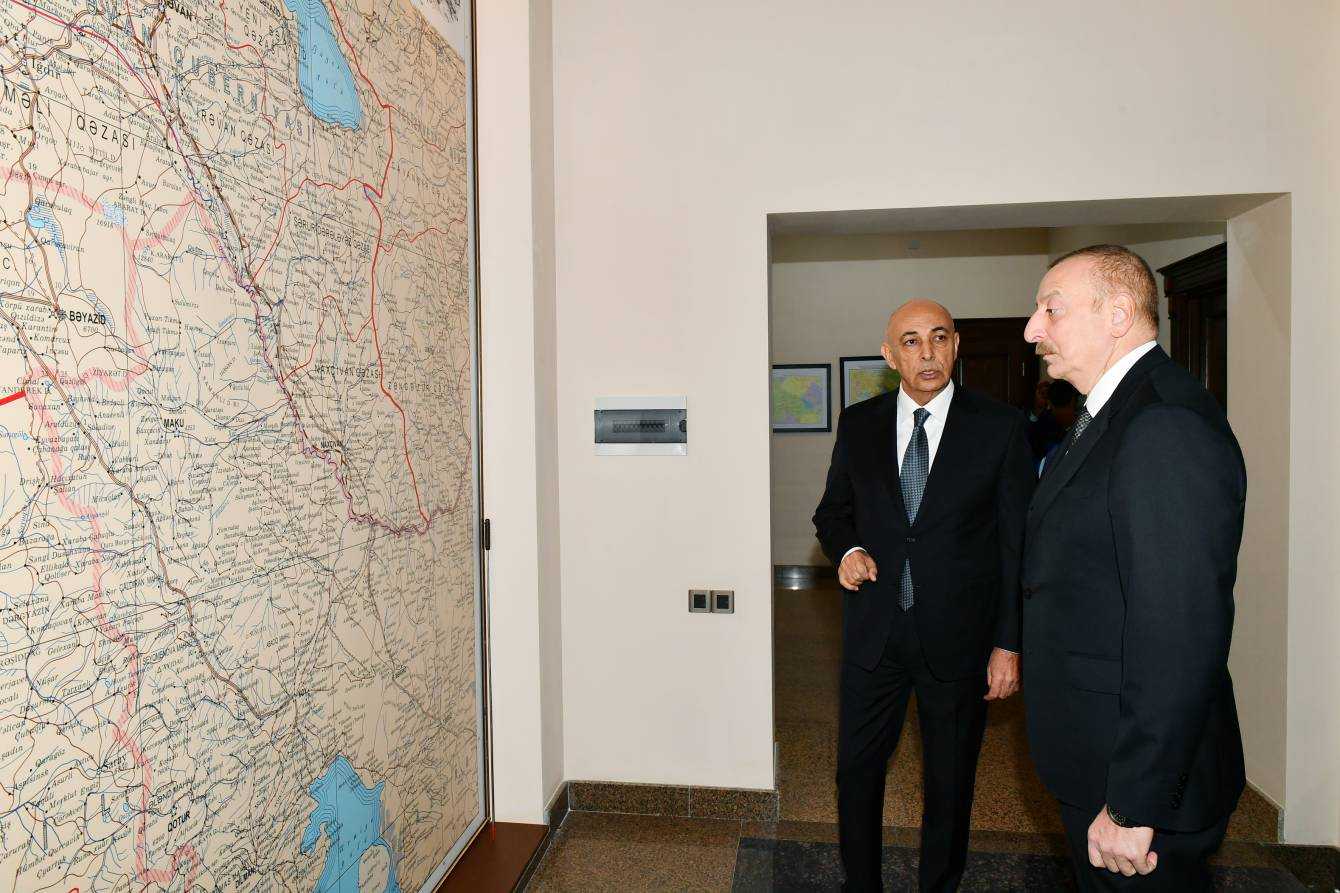Pashinyan: Azerbaijan and Armenia in agreement on principles of peace treaty

Officials in Baku and Yerevan have expressed hope throughout October of an impending peace agreement between the two countries.
On Monday, Armenian Prime Minister Nikol Pashinyan said that Yerevan and Baku were in agreement on the ‘three main principles of peace and normalisation of relations’. He said that if both parties remained faithful to those principles, ‘the signing of the peace treaty becomes realistic’.
Pashinyan’s statement comes less than a week after he unveiled the ‘Crossroads of Peace’, an Armenian government proposal to establish a series of roads, railways, and power lines connecting Azerbaijan and Turkey through Armenia.
‘Without roads, it will be very difficult to build peace’, noted Pashinyan after unveiling the proposal at the Tbilisi Silk Road Forum, where he also expressed hope that Armenia and Azerbaijan would reach a peace agreement ‘in the coming months’.
Hakob Vardanyan, Armenia’s deputy minister for territorial administration and infrastructure, also announced Armenia’s willingness to buy Azerbaijani gas after the settlement of ‘political problems’.
At the forum in Tbilisi, Georgia’s Prime Minister Irakli Gharibashvili also offered his country’s mediation in the Armenia–Azerbaijan peace process. He later had an informal meeting with his Azerbaijani and Armenian counterparts.
On Wednesday, Nikoloz Samkharadze, the Georgian Parliament’s foreign relations committee chair, said that Georgia wishes Tbilisi would be ‘where the peace treaty will be signed’.
A glimmer of hope amidst cancelled meetings
Despite Armenia’s apparent optimism towards a potential peace deal with Azerbaijan, Azerbaijan has sat out several planned meetings with Armenia throughout October.
Pashinyan and Azerbaijan’s President Ilham Aliyev were due to meet in Brussels with Toivo Klaar, the EU’s Special Representative for the South Caucasus, in the end of October before the meeting was postponed.
Armenia’s Foreign Minister Ararat Mirzoyan later explained that ‘obviously’ Aliyev did not find the time to go to Brussels for the meeting, despite Armenia’s readiness to participate in the talks.
‘I hope that the problem is really the specific dates, and in the near future, it will be possible to agree on new dates for the new meeting’, said Mirzoyan.
Aliyev also sat out another big meeting with Pashinyan in Granada in early October.
Following this, Yerevan raised doubts about Baku’s willingness to complete the peace process, with the Armenian Deputy Foreign Minister Vahan Kostanyan stating that Aliyev’s statement about readiness to hold negotiations in Tbilisi that Baku’s ‘constant chang[ing] of formats raises serious doubts about whether it is interested in completing the peace process at all’.
Last month, Politico reported that US Secretary of State Antony Blinken told US lawmakers that Azerbaijan might invade southern Armenia ‘in the coming weeks’.
Washington has described the claims as ‘inaccurate’, while officials in Baku have expressed hopes for a peace agreement in the near future.
In another interview with Politico, Aliyev’s Presidential Adviser, Hikmat Hajiyev, even went so far as to stress that Azerbaijan had no interest in staking claims to Armenian territory.
Hajiyev told Politico that Azerbaijan’s proposed ‘Zangezur corridor’, a road that would connect western Azerbaijan to the Azerbaijani exclave of Nakhchivan, had ‘lost its importance’.
Azerbaijan has previously repeatedly pushed for the corridor, with Aliyev even threatening to establish it by force earlier this year.
Instead, Azerbaijan and Iran began the construction of a corridor to reach Nakhchivan through Iranian territory.
‘Our agenda was the establishment of transport links and connections within the framework of bilateral negotiations. The project is still on the table, but the Armenian side should show that it is really interested in it’, said Hajiyev.
On Monday, Azerbaijan’s Deputy Foreign Minister Elnur Mammadov told Azertaj that ‘Azerbaijan is committed to the agenda of a peace treaty with Armenia’.
‘Azerbaijan’s proposal regarding the peace agreement is still valid today. Therefore, the next steps should be taken mostly by Armenia. To date, most of the points of the peace agreement have been agreed between the parties’ he said.
‘We believe that after Azerbaijan fully restores its sovereignty over its internationally recognised territories in Karabakh, the signing of the peace agreement is even more comfortable, easy, and the probability of its signing should be high.’
An earlier version of this article incorrectly described Hakob Vardanyan as Armenia’s deputy prime minister. Vardanyan is currently serving as Armenia’s deputy minister of territorial administration and infrastructure, and the article has been amended accordingly.









